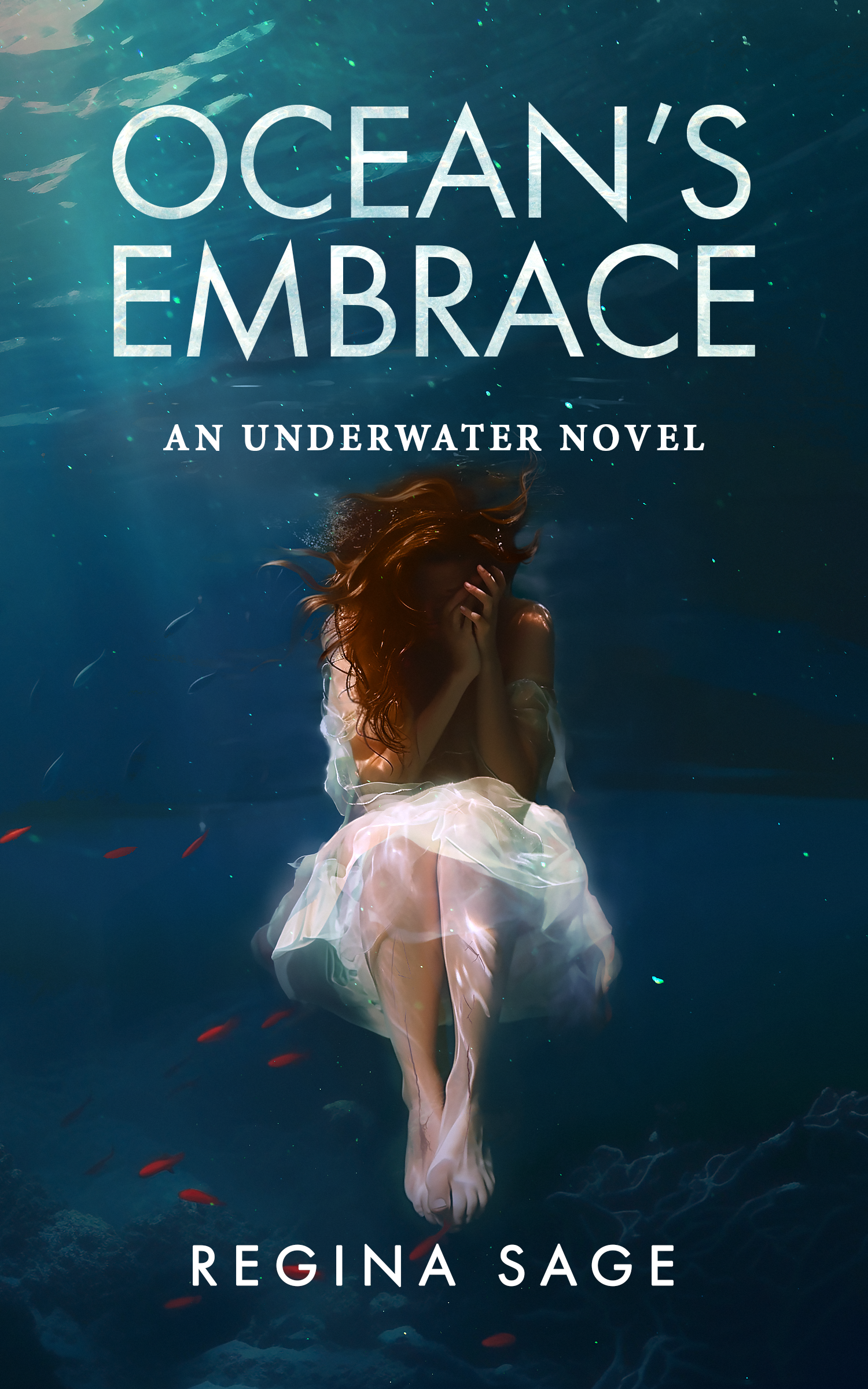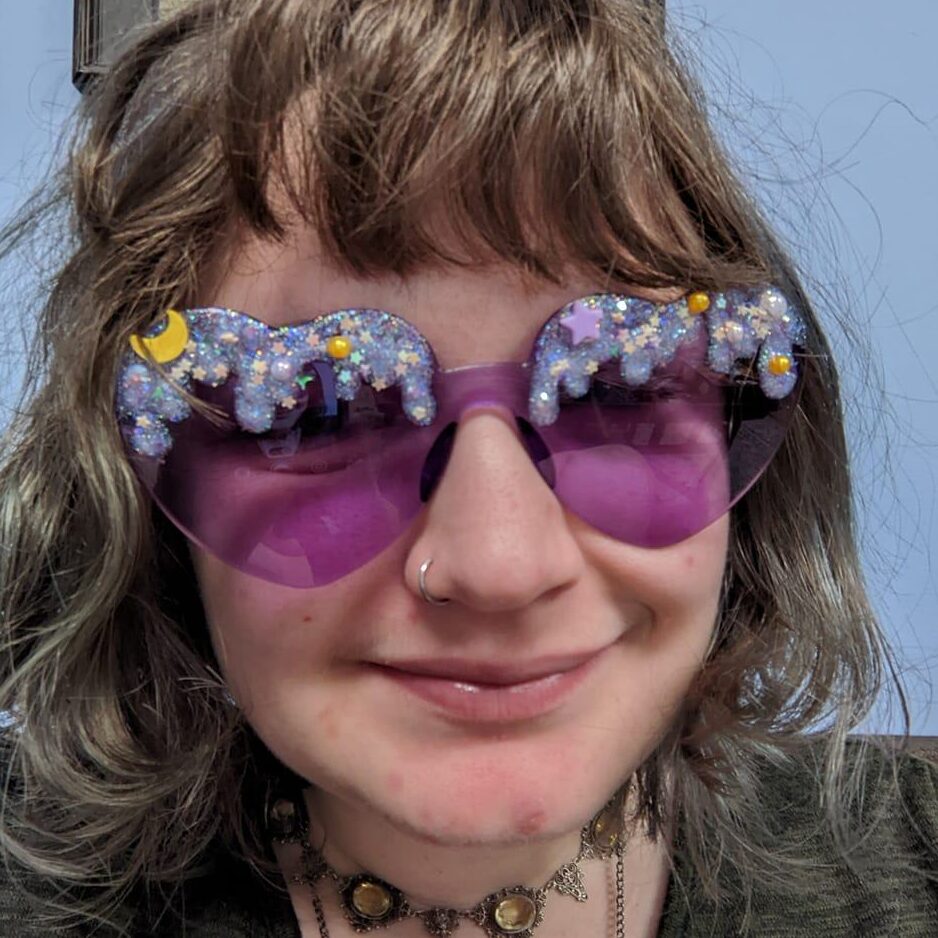Alone in the black abyss of the sea, Relic Hunter Sven seeks a cultural treasure. What he finds is a drowning woman: Leanne. She meant to dive into the dating pool on a cruise, but a freak hurricane threw her into the sea instead—right into the embrace of a supernatural hunk.
Bound by a passion that overwhelms their differences, Leanne and Sven fight to deepen their relationship. Hostile shapeshifters, disapproving parents, and the Council of Elders set obstacles to keep them apart. Will they remain together to continue Sven’s Hunt? Or will a plot by domestic terrorists be the downfall of them all?
We spoke to author Regina Sage about Ocean’s Embrace, the disability representation in the novel, and creature romance. This interview has been edited and condensed for clarity.
Ocean’s Embrace is a sci-fi love story. What is it about human-supernatural love stories that you think capture people’s hearts?
I’m personally drawn to stories with love as a central focus, but I enjoy it particularly in sci-fi because of the beautiful juxtaposition between cold, technological advancement and messy, visceral humanity. I see love as a powerful force, a special kind of magic, that can overcome so many obstacles.
The supernatural or sci-fi/fantasy elements provide opportunities for escapist adventures, yes, but also symbolize the obstacles we face in the real world. My main characters come from different worlds, with wildly different skills and abilities. Reconciling these, overcoming the obstacles, and finding love together, is something many readers can relate to, and the promise of an emotionally satisfying ending in romance is a strong point of interest. I think we all want to see ourselves in a story, and we want it to end well. When we write or read books like that it can comfort, heal, or inspire faith in us that our own stories will work out, too.
Your female main character, Leanne, is disabled with mobility and stability aids. In the story’s development, did that aspect of her character develop later or was it always planned?
In planning, Leanne was always supposed to have some kind of mobility aid, though it took some experimentation to find what felt true, to life and to Leanne as she developed on the page. I wanted to write a character that was proud of herself, happy to be herself. It was also important to me to write Leanne so that she constantly strives to love and accept herself and others, even on days when the pain is bad, or when dysmorphia is riding her, or when others make unwanted comments and criticisms. In particular, I hoped her character would convey that we all deserve pleasure and happiness, physically or emotionally, no matter where we come from, what we look like, or how we navigate the world.
Your book is duel POV between Leanne and the supernatural hunk, Sven. As a writer, what made you decide to delve into both perspectives?
Including multiple perspectives can serve to highlight certain aspects of the story and it gives a richer experience to the reader. I personally love reading books like this, and it was a natural way to illustrate the knowledge gaps between Sven and Leanne. They have such different backgrounds, but can agree on so much. Ultimately, they learn and grow stronger from these differences, and the reader gets to follow that transformation more easily with the shifting POV.
Are there books, shows, movies, games, or other media that influenced or inspired your work?
Some books have been big influences on my style and my interests, but I’d say more it is people that inspire my work. Authors Nalini Singh and Patricia Briggs have vivid characters and write messy and amazing interpersonal relationships. The works of Tolkein and Lois McMaster Bujold both showed me how wide and deep I could make my own fictional worlds. People in my life have inspired me to write works that are more representative and inclusive, for sure.
What got you into writing, and what are your future plans in terms of writing?
When I was little, we spent a lot of time in the car, and making up stories together was a good way to pass the time. In the last five years, I’ve spent a lot of time in the car traveling for medical appointments, and making up stories was a good way to occupy myself. Typing them up was a thing I did for myself to keep the blues at bay, a special activity that made me happy, and the more I wrote, the more characters came to life. Doing something just for the pleasure of it really improved my life and my health, so I kept writing. While I didn’t think I’d ever publish, I’m now glad I did. Three books in the series are currently available, one is set to release this coming fall, and I hope to follow that with a new book release every year.
Anything else you would like to add?
My hopeful goal in writing these books is to validate someone’s experience. Life is hard, and we all benefit from reminders that we matter, we deserve to be happy, we deserve to be loved, but that it is okay to struggle to accept happiness and love, too, because growth and healing are not linear.


